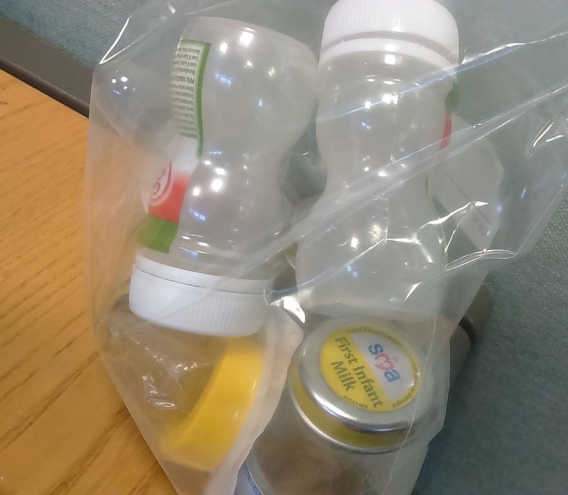Project
Maternity hospitals generate packaging, food and electronic wastes as a result of infant feeding. Possible mitigation measures for the reduction of these wastes are incredibly complex as best practice in waste management and World Health Organisation recommendations on infant feeding must be followed.
By establishing the environmental impact that infant feeding decisions within maternity units, solutions and actions can be developed to improve resource efficiency within the healthcare system and wider society. This will not only lower operational costs for hospitals but also result in wider resource efficiency.
This project is funded by the Environmental Protection Agency, under the Sustainability Pillar of the EPA’s Research Programme 2014-2020. University of Limerick Hospitals, University of Limerick Maternity Hospital and Cork University.
This project will determine quantifiable environmental impacts resulting from infant feeding decisions in Ireland together with methodologies, guidance, policy recommendations and mitigation measures. Environmental reviews, awareness raising and environmental education opportunities will provide immediate wins in terms of resource efficiency and waste prevention for participant maternity units in the study. Data will be made available on SAFER and findings will be published as final reports and in peer reviewed journals. Best practice guides, methodologies and tools will contribute to National Policy on resource efficiency and waste prevention and are especially relevant to EPA BeGreen Programmes.
Research
This research team examines the environmental effects of the consumption of infant foods: this follows the general methodology adopted by Dr. O’Regan and her team which maximizes participation of the community but at the same time is sufficiently rigorous and evidence-based to be publishable in leading journals. These are most readily analysed at hospital level through observations on resource efficiency and solid, electronic, and liquid wastes generated. If our healthcare facilities are to follow World Health Organization (WHO) recommendations on infant feeding, scenario analysis indicates that actions to minimise environmental impacts are necessarily much more complex than simply decisions based on breastfeeding or infant formula. The research team is working with the Environmental Protection Agency, University of Limerick Hospitals, University of Limerick Maternity Hospital and Cork University Maternity Hospital.
This research examines the environmental impacts of infant feeding decisions; the extent of these impacts is currently unknown in both healthcare and society. Establishing environmental impact of infant feeding actions within maternity units, leads to development of solutions to improve resource efficiency in the healthcare sector. Various methodologies are trialled to establish environmental impact at the societal and community level through to establish a framework to firstly evaluate and secondly mitigate such dispersed and previously unaccounted impacts.
This project will determine quantifiable environmental impacts resulting from infant feeding decisions in Ireland together with methodologies, guidance, policy recommendations and mitigation measures. Environmental reviews, awareness raising and environmental education opportunities will provide immediate wins in terms of resource efficiency and waste prevention for participant maternity units in the study. Data will be made available on SAFER and findings will be published as final reports and in peer reviewed journals. Best practice guides, methodologies and tools will contribute to National Policy on resource efficiency and waste prevention and are especially relevant to EPA BeGreen Programmes.
Resources


